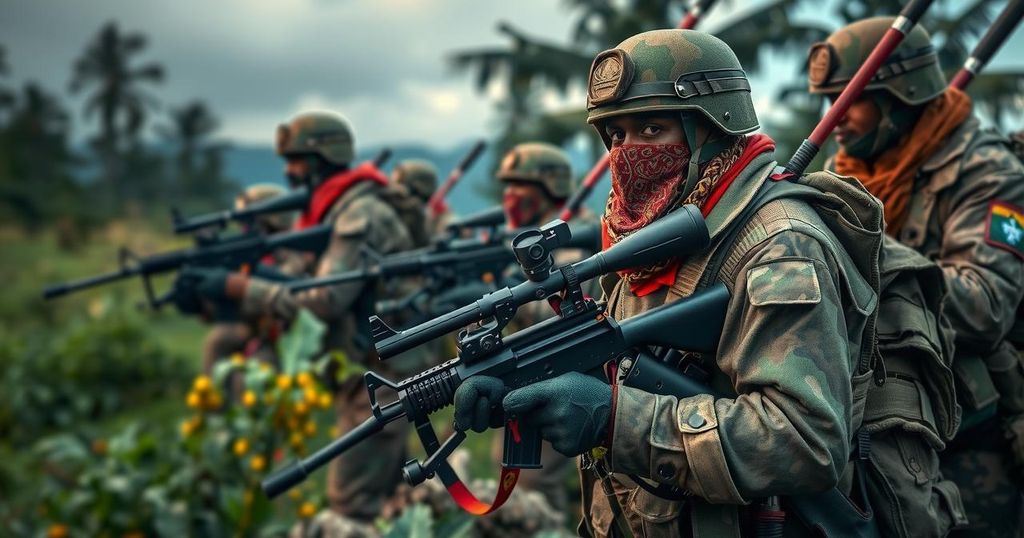The DRC army claims to have recaptured Kalembe from M23 rebels, who deny relinquishing control. The conflict represents broader regional tensions involving allegations of Rwandan support for M23. While military efforts are ongoing, significant fighting persists, exacerbating a humanitarian crisis in North Kivu.
The Democratic Republic of Congo’s (DRC) military reported on Tuesday that it had successfully recaptured the eastern town of Kalembe, which was previously seized by M23 rebels a day prior. However, M23 officials refuted this claim, asserting that they still maintain control over the area. Kalembe, located within the Walikale territory of North Kivu, fell under M23 control on Sunday morning after the rebels took it from Congolese armed forces and allied militia groups. The M23 group, known for its Tutsi-led composition, has resumed insurgent activities in eastern DRC since 2022, raising concerns over regional stability. The DRC government and the United Nations have accused neighboring Rwanda of supporting the M23 with military assistance, allegations that Rwanda has categorically denied. Sylvain Ekenge, spokesman for the Congolese army, announced that military forces had descended upon Kalembe via helicopter to address the rebel occupation. Despite these claims, Corneille Nangaa, a prominent leader within the Congo River Alliance—of which the M23 is a part—contended that fighting was still ongoing and M23 remained entrenched in the region. Additionally, Angola’s government noted that the M23’s incursion into Kalembe represents a clear breach of a ceasefire arranged through Angolan mediation in August. According to Kabaki Alimasi, an official from Walikale territory, although the army declared the town retaken, skirmishes persist nearby, and local residents have yet to return to their homes due to continuing violence. The ongoing conflict in DRC’s resource-rich eastern region exacerbates an already critical humanitarian crisis, with approximately 2.6 million individuals displaced by the end of September, as per United Nations reports.
The conflict in the eastern Democratic Republic of Congo, particularly in North Kivu, stems from a complex interplay of ethnic tensions, regional politics, and historical grievances. The M23 group has emerged as a significant actor in this landscape, drawing upon support from various backers, including foreign nations like Rwanda. The resurgence of M23’s military activities since 2022 has precipitated a series of clashes with the DRC military and pro-government militias, further destabilizing the area and prompting large-scale displacements of civilians. The ceasefire agreement mediated by Angola represents international efforts to de-escalate tensions, yet incidents such as the recent fight for Kalembe highlight the fragile situation on the ground.
In summary, the conflict in Kalembe highlights the ongoing struggle between the Congolese army and M23 rebels in North Kivu. While the army claims to have regained control of the town, conflicting reports from rebel leaders suggest that the situation remains precarious. The violence continues to displace significant numbers of people, compounding the humanitarian crisis in the region. Diplomatic efforts to mediate peace have been undermined by repeated violations of ceasefire agreements, underscoring the complexity of the conflict in the Democratic Republic of Congo.
Original Source: www.voanews.com






